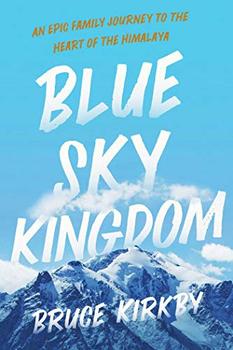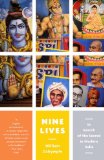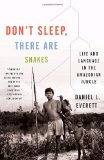Summary | Excerpt | Reading Guide | Reviews | Beyond the book | Read-Alikes | Genres & Themes | Author Bio

An Epic Family Journey to the Heart of the Himalaya
by Bruce KirkbyWho hasn't dreamed of escaping all of the trappings of today's modern life and finding a secluded, spiritually immersive oasis to reinvigorate the soul? Yet dreaming and doing are worlds apart. Not so for Bruce Kirkby, wife Christine, and sons Bodi and Taj. In Kirkby's travel memoir Blue Sky Kingdom, the family traverses the Himalayas by foot and horseback to arrive at an ethereal monastery hanging off of the edge of a mountain in Zanskar, a remote region of India. The impetus for the trip is a combination of Kirkby's increasing preoccupation with technology and Bodi's diagnosis of what is at the time termed Asperger's syndrome (now categorized under autism spectrum disorder). As the author scrolls through his phone over Cheerios, he realizes Bodi has described the entire solar system, yet he heard not a word until his son began screaming for his attention. Kirkby waxes philosophical about the tremendous toll we pay when we succumb to the sterile, isolating life behind a screen:
I understood that if there was to be any hope of truly connecting with my eldest son, of deciphering the opaque messages he left scattered in his wake and bringing light to all the beauty concealed within, I needed to be goddamned present.
Anyone who has heard the siren song of a life cloistered away from the discordant sounds of buzzing smart phones, pinging emails and vibrating text messages will feel envious as the author extols the virtues of "a rare feeling, with nothing calling." His glimpse into a world where living is grounded in nature and imbued with a sense of community and cooperation, greatly contrasts the world to which he returns. He describes his transformation as he strips away each of the tentacles of technology that tether modern existence. Certainly Blue Sky Kingdom beckons those among us who yearn for a simpler, more spiritually fulfilling life.
However, at times the plot plods along in tandem with the family journey. While stories of the boys' exploits are entertaining, and descriptions of certain architecture and rituals are enlightening, the volume of these diversions bogs the work down. No doubt Kirkby is attempting to create balance in the telling of his experience by explaining how an archaic toilet (read: hole in the ground that often spits back what is deposited within it) functions or how the "lost boys" — young monks in training — are plagued with snotty noses. But these interruptions remove the reader from more pertinent narrative threads, such as the family's attempt to come to terms with Bodi's autism, or the loss of a sense of community in today's modernized world.
Those who are philosophically inclined will be interested in Kirkby's centering of the Zanskar idea of the paspun, or community: "As a social institution, the paspun is unique to Zanskar, and every family in the village across the entire valley belongs to one." These large groups of non-related families support one another in birth, death, work, hardship and celebration, regardless of the cost. As his journey comes to a close, Kirkby astutely notes that it has brought out the best in his family, as they operate as one, or as the paspun. Such sojourns, he muses, make us keenly aware of the dissolution of traditional neighborhoods in the progressive world. After spending time with a local paspun harvesting alfalfa, Kirkby ponders what we have lost in the face of our modern gains, querying, "Why have we allowed so much of what has brought us joy in generations past to seep from our lives? Collateral damage in the search for more?" Kirkby attributes this collateral damage, in part, to the lack of compassion today's societies have for differences and the polarization of individuals in communities.
The author peppers both Buddhist and Zanskar history throughout his accountings of his family's travels, along with the wisdom of autism advocate Temple Grandin and others, to surmise how his young son Bodi will navigate through life. The book includes rich pictures of the family's adventure, along with sketches of artifacts and symbols surrounding the rituals and culture of the monastery, which facilitate an intimacy with their journey. Kirkby's vibrant description of the residents of the monastery, most particularly their host, Lama Wangyal, and a posse of young monks in training, are truly endearing.
The Kirkbys make a concerted effort to respect, understand and follow custom, readily acclimating to the paspun system. As a result, the author becomes keenly aware that this way of life is fast disappearing, and feels protective when tourists descend upon the monastery photographing the lamas during a ceremony, despite being waved off. He points out another disconcerting effect of technology and social media: "Images appear to hold more currency than the experience itself, and this hunger is inciting increasingly disrespectful behavior."
Tourism is increasing in the remote mountain range as travelers flock to catch a glimpse of this preserved ancient culture. But how much is there to see of the old ways as the farmland is being torn up to make way for highways to carry selfie-snapping gawkers to their destination, and the paspuns start to disappear as young Zanskarians are lured into larger urban areas? On their way home, the Kirkbys choose to trek out by foot and horseback through ice and snow avoiding the newly constructed roads that will carry modernization toward the secluded community. Kirkby ultimately leaves us to grapple with the question, "What human riches are we sacrificing in our endless rush toward progress?"
![]() This review was originally published in The BookBrowse Review in November 2020, and has been updated for the
August 2022 edition.
Click here to go to this issue.
This review was originally published in The BookBrowse Review in November 2020, and has been updated for the
August 2022 edition.
Click here to go to this issue.

If you liked Blue Sky Kingdom, try these:

by William Dalrymple
Published 2011
A mesmerizing book that illuminates the remarkable ways in which traditional forms of religious life in India have been transformed in the vortex of the region’s rapid change.

by Daniel L. Everett
Published 2009
A riveting account of the astonishing experiences and discoveries made by linguist Daniel Everett while he lived with the Pirahã, a small tribe of Amazonian Indians in central Brazil.
Your guide toexceptional books
BookBrowse seeks out and recommends the best in contemporary fiction and nonfiction—books that not only engage and entertain but also deepen our understanding of ourselves and the world around us.